

Opioid Settlement Fund
Spending and Public Health in Maine
How are the opioid settlement funds being spent in Maine, and how are decisions regarding funding priorities made?
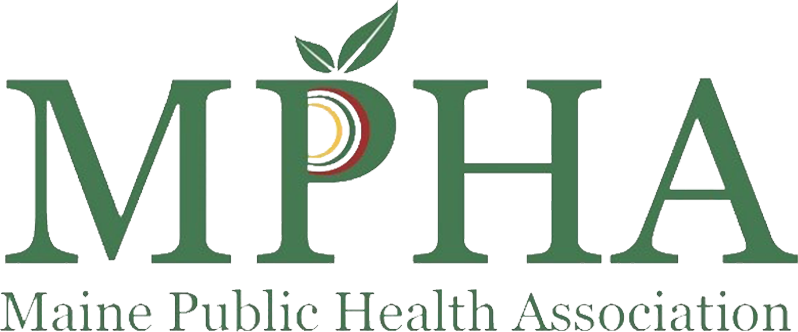
Course Information
- Audience: All public health professionals working in nonprofits, healthcare, educational institutions, government and private sector
- Format: Webinar
- Date/Time: November 6th, 2025 12:00 PM – 1:00 PM ET.
- Price: Free
- Length: 1 hour
- Credential(s) eligible for contact hours: Sponsored by New England Public Health Training Center (NEPHTC), a designated provider of continuing education contact hours (CECH) in health education by the National Commission for Health Education Credentialing, Inc. This program is designated for Certified Health Education Specialists (CHES) and/or Master Certified Health Education Specialists (MCHES) to receive up to 1 total Category I continuing education contact hours. Maximum advanced-level continuing education contact hours are 1. Provider ID: Event ID: .If you are not seeking a CHES/MCHES contact hours, if you complete the post-test and evaluation, you will receive a Certificate of Completion. The Certificate will include the length of the course.
- Competencies: Policy Development & Program Planning Skills
- Learning Level: Awareness
- Companion Trainings: None
- Supplemental materials:None
- Pre-requisites: None
About this Webinar
This webinar will share information about the opioid settlement funds and their purpose. It will emphasize why public health experts need to be at the table to offer best practice guidance that ensures opioid settlement funds are spent efficiently and appropriately by Maine’s counties, cities, and towns as they spend the funds.
The Maine Opioid Settlement Support (MOSS) Center will discuss the four pillars of recommended spending and highlight the cooperative nature of the MOSS Center approach, which aims to offer a public health perspective, utilize existing local expertise, increase capacity for a community-driven process, foster best practice decision-making, and evaluate the impact of settlement fund spending. It will also offer actionable ways that local public health experts or organizations can assist Maine in utilizing its funds to support substance use disorder prevention, harm reduction, treatment, and recovery. The Maine Recovery Council will discuss its purpose and work within Maine, provide examples of what the council has accomplished, and share where the council is headed in the coming years. The Cumberland County Public Health Department will provide background about the process of deciding how to spend the settlement funds, how these decisions are made, and its action plan and priorities for investing. It will also share county and municipal examples of programs utilizing the opioid settlement funds to improve public health.
What you'll learn
-
What the opioid settlement funds are.
- Name the four pillars of recommended spending for opioid settlement funds.
- Understand how the opioid settlement funds are being used in Maine and how these funding decisions are made.
- Where to go for more information related to opioid settlement funds in Maine.
-
Subject Matter Expert(s)
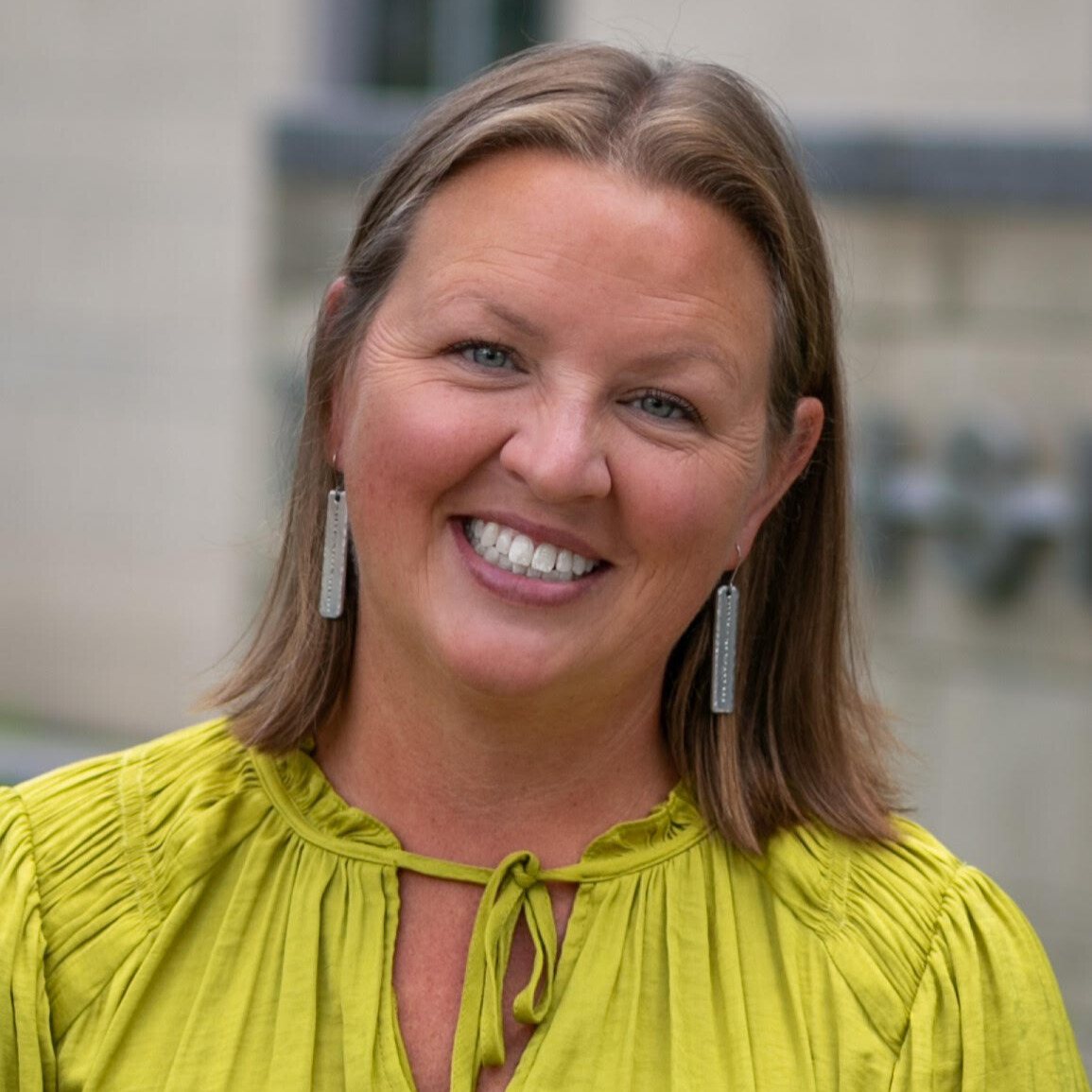 Jennah Godo, MS
Jennah Godo, MS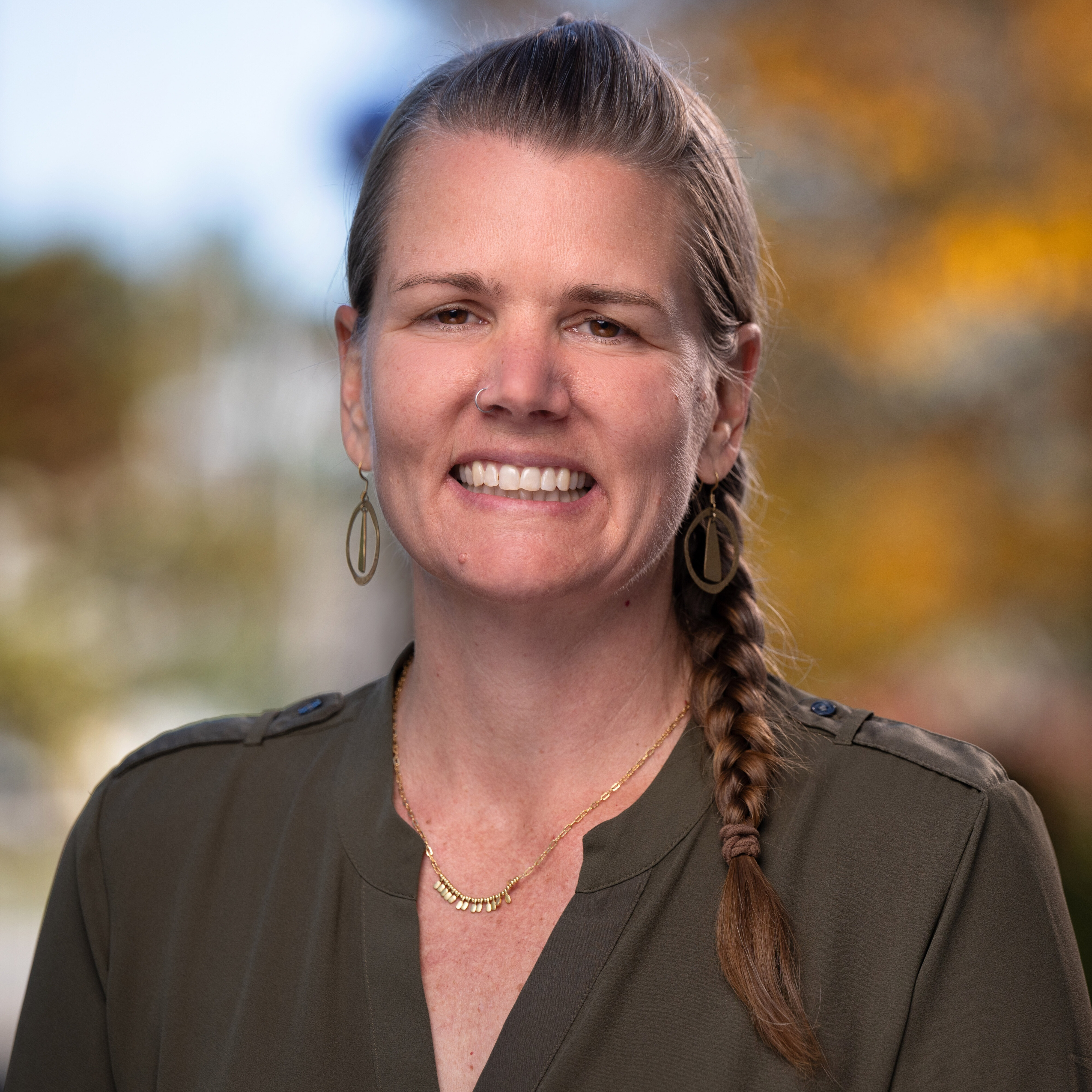
Liz Blackwell, MPH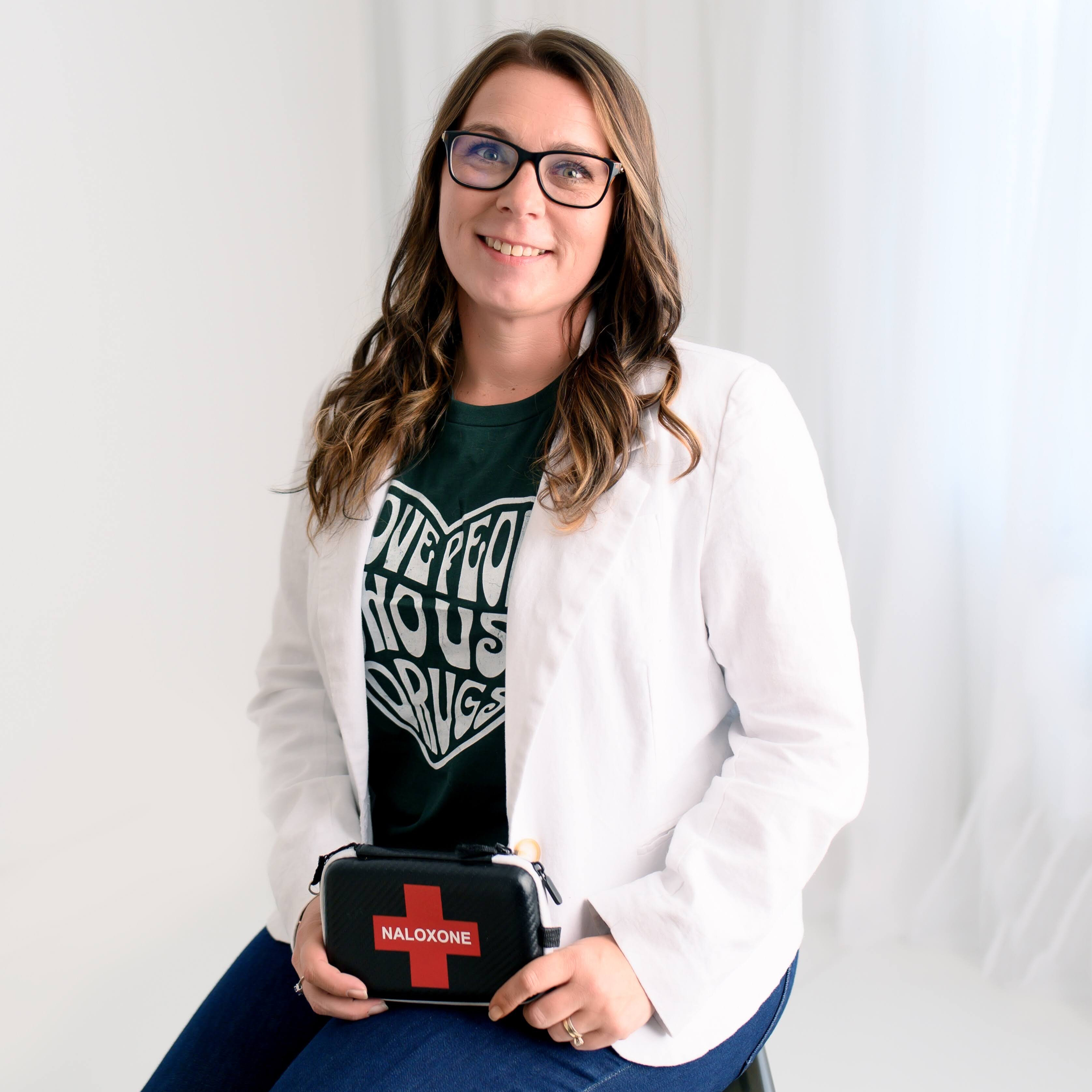
Chasity Tuell
Jennah is the lead for the MOSS Center’s Outreach and Communications core at the Catherine Cutler Institute. She has over 20 years of work experience in public health, primarily in sexual health and substance prevention. As full-time staff at the Center, her primary role is to connect with communities across Maine, understand where they are and support their technical assistance needs. Additionally, she facilitates collaboration and increases communications regarding Maine Settlement Funds.
Liz has been in the fields of behavioral health and public health since 2000, first in direct service as a case manager and for the last 20 years working with communities to bring public health research into practice and implement restorative, healing-centered approaches to addressing public health problems. Liz is currently the Director of Cumberland County Public Health and a member of the Maine Recovery Council. She has her master’s degree from Boston University’s School of Public Health.
Chasity is the newly appointed Executive Director of the Maine Recovery Council (MRC), and a lifelong resident of Washington County. As a person with lived experience of chaotic substance use, Chasity is deeply committed to supporting and advocating for individuals who use drugs, regardless of where their substance use falls on the spectrum. Prior to being named ED of MRC, Chasity served on the inaugural MRC for two and a half years, most recently as Vice Chair, and was an advocate for the legislation that expanded the Council’s membership to be more inclusive of impacted voices. As a Harm Reduction Consultant and Advocate, her career has been dedicated to expanding harm reduction services in rural and underserved areas and providing technical assistance and training to communities, organizations, and healthcare providers across the state.
Enrollment and Contact Hours
Select the Enroll button below to register for the course. If you have any trouble accessing the course, contact support@nephtc.org.
Acknowledgement: This project is supported by the Health Resources and Services Administration (HRSA) of the U.S. Department of Health and Human Services (HHS) as part of award 2 UB6HP31685‐05‐00 “Public Health Training Centers.” The contents are those of the author(s) and do not necessarily represent the official views of, nor an endorsement, by HRSA, HHS or the U.S. Government.This training was supported by the Health Resources and Services Administration (HRSA) of the U.S. Department of Health and Human Services (HHS) as part of a financial assistance award totaling $400,000 with 100% funded by HRSA/HHS and 0% funded by nongovernment source(s). The contents are those of the author(s) and do not necessarily represent the official views of, nor an endorsement, by HRSA/HHS, or the U.S. Government.
* Yale School of Public Health, Office of Public Health Practice, a New England Public Health Training Center partner, is a designated provider of continuing education contact hours (CECH) in health education by the National Commission for Health Education Credentialing, Inc. All CHES credit inquiries are managed by YSPH
Registration
Select the Enroll Me button below to register for this recording. If you have any trouble accessing the recording, contact support@nephtc.org.
Acknowledgement: This project is supported by the Health Resources and Services Administration (HRSA) of the U.S. Department of Health and Human Services (HHS) as part of award 2 UB6HP31685‐05‐00 “Public Health Training Centers.” The contents are those of the author(s) and do not necessarily represent the official views of, nor an endorsement, by HRSA, HHS or the U.S. Government.

Understanding
How Current Trends in Gambling Impact the Mind, Body, and Health
How is the rapid expansion of online gambling shaping the impact of problem gambling and how we prevent and treat it?

Course Information
- Audience: All public health professionals working in nonprofits, healthcare, educational institutions, government and private sector
- Format: Webinar
- Date/Time: October 14th, 2025 12:00 PM – 1:00 PM ET.
- Price: Free
- Length: 1 hour
- Credential(s) eligible for contact hours: Sponsored by New England Public Health Training Center (NEPHTC), a designated provider of continuing education contact hours (CECH) in health education by the National Commission for Health Education Credentialing, Inc. This program is designated for Certified Health Education Specialists (CHES) and/or Master Certified Health Education Specialists (MCHES) to receive up to 1 total Category I continuing education contact hours. Maximum advanced-level continuing education contact hours are 1. Provider ID: Event ID: .If you are not seeking a CHES/MCHES contact hours, if you complete the post-test and evaluation, you will receive a Certificate of Completion. The Certificate will include the length of the course.
- Competencies: Policy Development & Program Planning Skills
- Learning Level: Awareness
- Companion Trainings: None
- Supplemental materials:None
- Pre-requisites: None
About this Webinar
Recent expansion of online gambling means that people are gambling 24/7 on their devices, whether it’s at work, in bed, or watching tv with their kids. Explore the profound impact of gambling addiction on individuals and families, covering emotional, financial, physical, and psychological effects. This webinar will allow participants to better understand problem gambling as a public health issue and the impacts it has on individuals, families, and communities. Dr. Fong will share information about identifying the warning signs, prevention strategies, and evidence-based treatments and solutions to address gambling disorder.
What you'll learn
- Understand the Impact: Recognize the emotional, financial, physical, and psychological effects of gambling addiction on families and loved ones.
- Identify Warning Signs: Learn how to identify signs of problem gambling.
- Describe Evidence-Based Treatments and Solutions: Be able to name and utilize three evidence-based practice to address problem gambling.
- Learn Preventive Measures: Develop and implement three preventive action that can be taken in the workplace to reduce the impact of problem gambling.
-
Subject Matter Expert
 Timothy Fong, MD
Timothy Fong, MD
a. Dr. Fong is a Professor of Psychiatry at the Semel Institute for Neuroscience and Human Behavior at UCLA, board certified in adult and addiction psychiatry, the director of the UCLA Addiction Psychiatry Fellowship, and the co-director of the UCLA Gambling Studies Program.
Enrollment and Contact Hours
Select the Enroll button below to register for the course. If you have any trouble accessing the course, contact support@nephtc.org.
Acknowledgement: This project is supported by the Health Resources and Services Administration (HRSA) of the U.S. Department of Health and Human Services (HHS) as part of award 2 UB6HP31685‐05‐00 “Public Health Training Centers.” The contents are those of the author(s) and do not necessarily represent the official views of, nor an endorsement, by HRSA, HHS or the U.S. Government.
This training was supported by the Health Resources and Services Administration (HRSA) of the U.S. Department of Health and Human Services (HHS) as part of a financial assistance award totaling $400,000 with 100% funded by HRSA/HHS and
0% funded by nongovernment source(s). The contents are those of the author(s) and do not necessarily represent the official views of, nor an endorsement, by HRSA/HHS, or the U.S. Government.
* Yale School of Public Health, Office of Public Health Practice, a New England Public Health Training Center partner, is a designated provider of continuing education contact hours (CECH) in health education by the National Commission for Health Education Credentialing, Inc. All CHES credit inquiries are managed by YSPH
Registration
Select the Enroll Me button below to register for this recording. If you have any trouble accessing the recording, contact support@nephtc.org.
Acknowledgement: This project is supported by the Health Resources and Services Administration (HRSA) of the U.S. Department of Health and Human Services (HHS) as part of award 2 UB6HP31685‐05‐00 “Public Health Training Centers.” The contents are those of the author(s) and do not necessarily represent the official views of, nor an endorsement, by HRSA, HHS or the U.S. Government.

Alcohol Use Prevention in Maine
What are the long-term impacts of alcohol use on our health and systems?

Register
Course Information
- Audience: All public health professionals working in nonprofits, healthcare, educational institutions, government and private sector
- Format: Webinar
- Date/Time: Thursday, June 6th, 2024 12:00 PM – 1:00 PM ET.
- Price: Free
- Length: 1 hour
- Credential(s) eligible for contact hours: Sponsored by New England Public Health Training Center (NEPHTC), a designated provider of continuing education contact hours (CECH) in health education by the National Commission for Health Education Credentialing, Inc. This program is designated for Certified Health Education Specialists (CHES) and/or Master Certified Health Education Specialists (MCHES) to receive up to 1 total Category I continuing education contact hours. Maximum advanced-level continuing education contact hours are 1. Provider ID: Event ID: .If you are not seeking a CHES/MCHES contact hours, if you complete the post-test and evaluation, you will receive a Certificate of Completion. The Certificate will include the length of the course.
- Competencies: Policy Development and Program Planning Skills
- Learning Level: Awareness
- Companion Trainings: None
- Supplemental materials:None
- Pre-requisites: None
About this Webinar
Alcohol use kills an estimated 178,000 people in the US each year, but frequently, the harm caused by alcohol use is not regarded as a serious public health concern. This webinar will generate more public awareness and action in alcohol misuse prevention, and what we can do to disrupt alcohol use culture.
This webinar will cover what alcohol use prevention currently looks like in Maine, and why alcohol use should be a priority of anyone working in substance use prevention.
What you'll learn
After attending this webinar, participants will be able to:
- Identify at least three ways that alcohol use impacts long-term health.
- Understand the work being done at Maine CDC in alcohol use prevention
- Understand what each person can do to help create clarity and intention within alcohol use culture
Subject Matter Experts
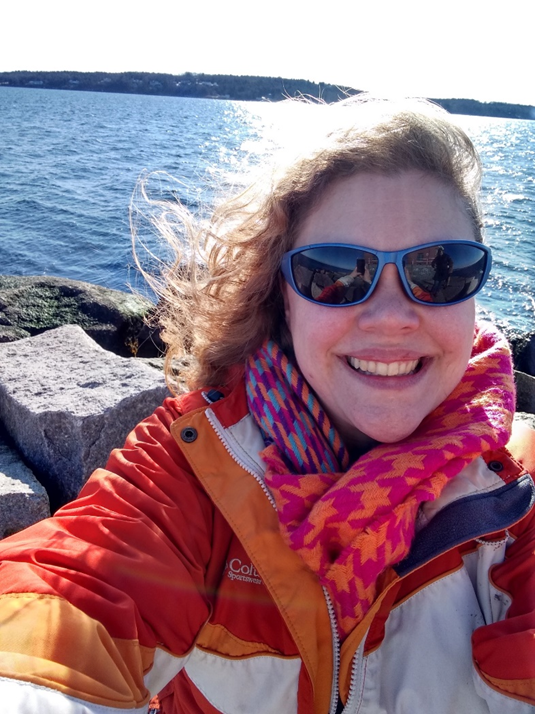
Ellen Blake
Rebecca Boulos, MPH, PhD is executive director of Maine Public Health Association. Becca earned her Master of Public Health from Yale University and her PhD from Tufts University. Becca provides research expertise for MPHA’s advocacy and policy efforts.
Ellen Blake is a certified prevention specialist working in substance use prevention for the Maine CDC, focusing on alcohol use prevention, workplace wellness, and problem gamblingservices. She began her work in prevention as a teenager, working for the Youth Empowerment Policy Project, and it’s been the field she’s worked to get back to ever since. Since starting at Maine CDC in 2020, she has elevated the state’s annual alcohol misuse prevention conference and created many new printed resources and tools to increase prevention awareness and strives to challenge our assumptions and break us out of habits, so each person can make informed and intentional choices about their health and safety.
Registration
Select the Enroll Me button below to register for this recording. If you have any trouble accessing the recording, contact support@nephtc.org.
Enroll Me
Acknowledgement: This project is supported by the Health Resources and Services Administration (HRSA) of the U.S. Department of Health and Human Services (HHS) as part of award 2 UB6HP31685‐05‐00 “Public Health Training Centers.” The contents are those of the author(s) and do not necessarily represent the official views of, nor an endorsement, by HRSA, HHS or the U.S. Government.

Cannabis in Maine: Public Health Policy & Impacts: Part 1 - Cannabis & Health
What impact does cannabis use have on the health of youth and adults?

Register
Course Information
- Audience: All public health professionals working in nonprofits, healthcare, educational institutions, government and private sector
- Format: Webinar
- Date/Time: Wednesday, November 29th, 12:00 PM – 1:00 PM ET
- Price: Free
- Length: 1 hour
- Credential(s) eligible for contact hours: Sponsored by New England Public Health Training Center (NEPHTC), a designated provider of continuing education contact hours (CECH) in health education by the National Commission for Health Education Credentialing, Inc. This program is designated for Certified Health Education Specialists (CHES) and/or Master Certified Health Education Specialists (MCHES) to receive up to 1 total Category I continuing education contact hours. Maximum advanced-level continuing education contact hours are 1. Provider ID: 1131137 Event ID:PM1131137_CIMPART1.
If you are not seeking a CHES/MCHES contact hours, if you complete the evaluations, you will receive a Certificate of Completion. The Certificate will include the length of the course. - Competencies: Public Health Sciences Skills
- Learning Level: Awareness
- Companion Trainings: None
- Supplemental materials:PowerPoint and follow-up email with any links mentioned during presentation.
- Pre-requisites: None
- Technical Requirements: This webinar is hosted on the Zoom platform. Please refer to the Zoom System Specifications to ensure your system meets the minimum requirements for connecting.
About this Webinar
Series Schedule:
- Nov 29, 2023 12:00 PM
Cannabis & Health - Lexi Perry (Maine CDC) & Scott Gagnon (AdCare Maine) - Dec 6, 2023 12:00 PM
Youth Use & Impacts - Rob Rogers (Kennebec Behavioral Health) & Lee Anne Dodge (SoPo Unite) - Dec 13, 2023 12:00 PM
Medical vs. Adult Use - Gabi Pierce (Maine Office of Cannabis Policy) & Becca Boulos (Maine Public Health AssociationA\) - Dec 20, 2023 12:00 PM
Municipal vs. State Policy - Rebecca Lambert (Maine Municipal Association) & Janet Dosseva (Westbrook Partners for Prevention)
What you'll learn
At the end of the recording, participants will be able to:
- Describe the health impacts of cannabis use on youth development and health
- Describe the health impacts of cannabis use on adult health
Subject Matter Experts

Lexi Perry

Scott Gagnon
Lexi Perry is a Prevention Specialist at Maine Center for Disease Control and Prevention.
Scott Gagnon is Associate Executive Director at Adcare Educational Institute of Maine.
Registration
Select the Enroll Me button below to register for this recording. If you have any trouble accessing the recording, contact support@nephtc.org.
Acknowledgement: This project is supported by the Health Resources and Services Administration (HRSA) of the U.S. Deparment of Health and Human Services (HHS) as part of award 2 UB6HP31685‐05‐00 “Public Health Training Centers.” The contents are those of the author(s) and do not necessarily represent the official views of, nor an endorsement, by HRSA, HHS or the U.S. Government.
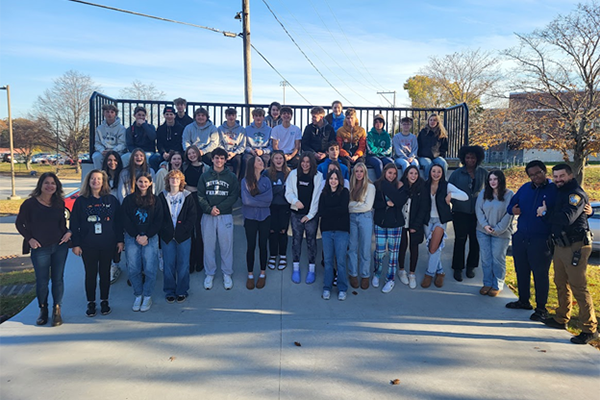
Cannabis in Maine: Public Health Policy & Impacts: Part 2 - Evidence-Based Cannabis Prevention for Youth
What impact does cannabis use have on the health of youth and adults?

Register
Course Information
- Audience: All public health professionals working in nonprofits, healthcare, educational institutions, government and private sector
- Format: Webinar
- Date/Time: Wednesday, December 6th, 12:00 PM – 1:00 PM ET
- Price: Free
- Length: 1 hour
- Credential(s) eligible for contact hours: Sponsored by New England Public Health Training Center (NEPHTC), a designated provider of continuing education contact hours (CECH) in health education by the National Commission for Health Education Credentialing, Inc. This program is designated for Certified Health Education Specialists (CHES) and/or Master Certified Health Education Specialists (MCHES) to receive up to 1 total Category I continuing education contact hours. Maximum advanced-level continuing education contact hours are 1. Provider ID: 1131137 Event ID:SS1131137_CIMPART2.
If you are not seeking a CHES/MCHES contact hours, if you complete the evaluations, you will receive a Certificate of Completion. The Certificate will include the length of the course. - Competencies: Community Partnership Skills
- Learning Level: Awareness
- Companion Trainings: None
- Supplemental materials:PowerPoint and follow-up email with any links mentioned during presentation.
- Pre-requisites: None
- Technical Requirements: This webinar is hosted on the Zoom platform. Please refer to the Zoom System Specifications to ensure your system meets the minimum requirements for connecting.
About this Webinar
Series Schedule:
- Nov 29, 2023 12:00 PM
Cannabis & Health - Lexi Perry (Maine CDC) & Scott Gagnon (AdCare Maine) - Dec 6, 2023 12:00 PM
Youth Use & Impacts - Rob Rogers (Kennebec Behavioral Health) & Lee Anne Dodge (SoPo Unite) - Dec 13, 2023 12:00 PM
Medical vs. Adult Use - Gabi Pierce (Maine Office of Cannabis Policy) & Becca Boulos (Maine Public Health Association) - Dec 20, 2023 12:00 PM
Municipal vs. State Policy - Rebecca Lambert (Maine Municipal Association) & Janet Dosseva (Westbrook Partners for Prevention)
What you'll learn
At the end of the recording, participants will be able to:
- Describe the health impacts of cannabis use on youth development and health
- Describe the health impacts of cannabis use on adult health
Subject Matter Experts

Robert Rogers
LADC, CCS, LSW, PS-A Director of Substance Use Prevention & Grant Services Kennebec Behavioral Health
Lee Anne Dodge
Program Director, SoPo Unite-All Ages All In
Robert Rogers LADC, CCS, LSW, PS-A has been working with youth and families throughout Somerset and Kennebec Counties since 1994. Currently, Robert works for Kennebec Behavioral Health as Director of Substance Use Prevention and Grant Services. He worked with Somerset Public Health as the Drug Free Communities Program Coordinator completing 10 years of coalition work. Robert is a certified Prime for Life instructor and a State of Maine certified Responsible Beverage Seller trainer for the Bureau of Alcoholic Beverages & Lottery Operations. Robert also coordinates Respect ME, a Certified Domestic Violence Intervention Program for female survivors of domestic violence that used resistive violence with their intimate partners. Robert was appointed to the states Substance Abuse Service Commission, served by appointment on the states Maine Opiate Collaborative Prevention and Harm Reduction team, served as Chair for the Maine Prevention Specialists Certification Board, and serves as a Maine representative on the New England Prevention Technology Transfer Center’s Advisory Board. Additionally, Robert is on the Board of Directors for AdCare of Maine and Sunset Home; a non-profit assisted living facility for older women in Waterville, Maine. Robert is an Adjunct Professor of Substance Use Prevention at the University of Maine at Farmington. Most recently, Robert was appointed by Governor Mills to the State of Maine Board of Alcohol & Drug Counselors and serves as the Board’s Chair. In 2021 Robert was awarded the Neill E. Miner Memorial Prevention Award and in 2014 was awarded Prevention Provider of the Year by the Maine Alliance to Prevent Substance Abuse.
Lee Anne Dodge is a Prevention Specialist and the Program Director of SoPo Unite: All Ages, All In-A Drug Free Communities Coalition. She has a Masters degree in Adult and Higher Education. Previously she was on the Maine CDC’s Prevention Team and provided oversight and technical assistance to community coalitions across the state. She worked at the University of Southern Maine as the Assistant Director of Student Life and Coordinator of Substance Use Prevention and Wellness. She was the coordinator of HEAPP- Maine’s Higher Education Alcohol Prevention Partnership and worked with over twenty of Maine’s campuses on substance use prevention. She has been a Prime for Life instructor for DEEP (Driver Education and Evaluation Program) instructor for the past 20 years and taught the Under 21 Program. She worked at the University of New Hampshire as a residence director for ten years. She lives in Dresden, Maine with her husband Andy and their yellow Lab: Minnie Pearl.
Registration
Select the Enroll Me button below to register for this recording. If you have any trouble accessing the recording, contact support@nephtc.org.
Acknowledgement: This project is supported by the Health Resources and Services Administration (HRSA) of the U.S. Deparment of Health and Human Services (HHS) as part of award 2 UB6HP31685‐05‐00 “Public Health Training Centers.” The contents are those of the author(s) and do not necessarily represent the official views of, nor an endorsement, by HRSA, HHS or the U.S. Government.

Cannabis in Maine: Public Health Policy & Impacts: Part 3 - Comparing Maine's Adult Use and Medical Cannabis Programs
How do the legal differences in Maine's regulated cannabis programs impact public health?

Register
Course Information
- Audience: All public health professionals working in nonprofits, healthcare, educational institutions, government and private sector
- Format: Webinar
- Date/Time: Wednesday, December 13th, 12:00 PM – 1:00 PM ET
- Price: Free
- Length: 1 hour
- Credential(s) eligible for contact hours: Sponsored by New England Public Health Training Center (NEPHTC), a designated provider of continuing education contact hours (CECH) in health education by the National Commission for Health Education Credentialing, Inc. This program is designated for Certified Health Education Specialists (CHES) and/or Master Certified Health Education Specialists (MCHES) to receive up to 1 total Category I continuing education contact hours. Maximum advanced-level continuing education contact hours are 1. Provider ID: 1131137 Event ID:SS1131137_CIMPART3.
If you are not seeking a CHES/MCHES contact hours, if you complete the evaluations, you will receive a Certificate of Completion. The Certificate will include the length of the course. - Competencies: Public Health Sciences Skills
- Learning Level: Awareness
- Companion Trainings: None
- Supplemental materials:PowerPoint and follow-up email with any links mentioned during presentation.
- Pre-requisites: None
- Technical Requirements: This webinar is hosted on the Zoom platform. Please refer to the Zoom System Specifications to ensure your system meets the minimum requirements for connecting.
About this Webinar
Series Schedule:
- Nov 29, 2023 12:00 PM
Cannabis & Health - Lexi Perry (Maine CDC) & Scott Gagnon (AdCare Maine) - Dec 6, 2023 12:00 PM
Youth Use & Impacts - Rob Rogers (Kennebec Behavioral Health) & Lee Anne Dodge (SoPo Unite) - Dec 13, 2023 12:00 PM
Medical vs. Adult Use - Gabi Pierce (Maine Office of Cannabis Policy) & Becca Boulos (Maine Public Health Association) - Dec 20, 2023 12:00 PM
Municipal vs. State Policy - Rebecca Lambert (Maine Municipal Association) & Janet Dosseva (Westbrook Partners for Prevention)
What you'll learn
At the end of the recording, participants will be able to:
- Describe the regulatory similarities and differences between the Adult Use and Medical Cannabis programs in Maine.
- Describe what impacts these policy frameworks have on the two industries, including use patterns, retail density, potency and safety.
Subject Matter Experts

Becca Boulos

Gabi Pierce
Becca Boulos, MPH, PhD is Executive Director at Maine Public Health Association
, Esq is the Policy Director at the Maine Office of Cannabis Policy.
Registration
Select the Enroll Me button below to register for this recording. If you have any trouble accessing the recording, contact support@nephtc.org.
Acknowledgement: This project is supported by the Health Resources and Services Administration (HRSA) of the U.S. Deparment of Health and Human Services (HHS) as part of award 2 UB6HP31685‐05‐00 “Public Health Training Centers.” The contents are those of the author(s) and do not necessarily represent the official views of, nor an endorsement, by HRSA, HHS or the U.S. Government.

Cannabis in Maine: Public Health Policy & Impacts: Part 4 - Municipal vs. State Policy
Which policies can be set at the state level vs. municipal level to protect public health and safety?

Register
Course Information
- Audience: All public health professionals working in nonprofits, healthcare, educational institutions, government and private sector
- Format: Webinar
- Date/Time: Wednesday, December 20th, 12:00 PM – 1:00 PM ET
- Price: Free
- Length: 1 hour
- Credential(s) eligible for contact hours: Sponsored by New England Public Health Training Center (NEPHTC), a designated provider of continuing education contact hours (CECH) in health education by the National Commission for Health Education Credentialing, Inc. This program is designated for Certified Health Education Specialists (CHES) and/or Master Certified Health Education Specialists (MCHES) to receive up to 1 total Category I continuing education contact hours. Maximum advanced-level continuing education contact hours are 1. Provider ID: 1131137 Event ID:SS1131137_CIMPART4.
If you are not seeking a CHES/MCHES contact hours, if you complete the evaluations, you will receive a Certificate of Completion. The Certificate will include the length of the course. - Competencies: Public Health Sciences Skills
- Learning Level: Awareness
- Companion Trainings: None
- Supplemental materials:PowerPoint and follow-up email with any links mentioned during presentation.
- Pre-requisites: None
- Technical Requirements: This webinar is hosted on the Zoom platform. Please refer to the Zoom System Specifications to ensure your system meets the minimum requirements for connecting.
About this Webinar
Series Schedule:
- Nov 29, 2023 12:00 PM
Cannabis & Health - Lexi Perry (Maine CDC) & Scott Gagnon (AdCare Maine) - Dec 6, 2023 12:00 PM
Youth Use & Impacts - Rob Rogers (Kennebec Behavioral Health) & Lee Anne Dodge (SoPo Unite) - Dec 13, 2023 12:00 PM
Medical vs. Adult Use - Gabi Pierce (Maine Office of Cannabis Policy) & Becca Boulos (Maine Public Health Association) - Dec 20, 2023 12:00 PM
Municipal vs. State Policy - Rebecca Lambert (Maine Municipal Association) & Janet Dosseva (Westbrook Partners for Prevention)
What you'll learn
At the end of the recording, participants will be able to:
- Describe the differences in policy scope at the state and local levels
- Describe policy options municipalities have to protect public health and safety
Subject Matter Experts

Rebecca Lambert
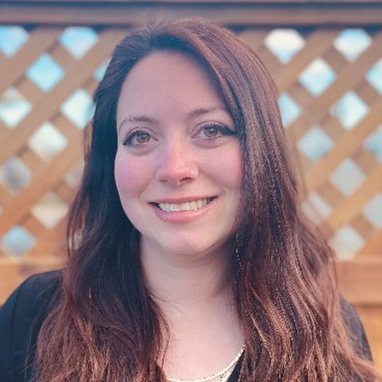
Janet Dossevan
Rebecca Lambert is the Municipal Issues Specialist at Maine Municipal Association.
Janet Dosseva is the Program Director at Westbrook Partners for Prevention
Registration
Select the Enroll Me button below to register for this recording. If you have any trouble accessing the recording, contact support@nephtc.org.
Acknowledgement: This project is supported by the Health Resources and Services Administration (HRSA) of the U.S. Deparment of Health and Human Services (HHS) as part of award 2 UB6HP31685‐05‐00 “Public Health Training Centers.” The contents are those of the author(s) and do not necessarily represent the official views of, nor an endorsement, by HRSA, HHS or the U.S. Government.
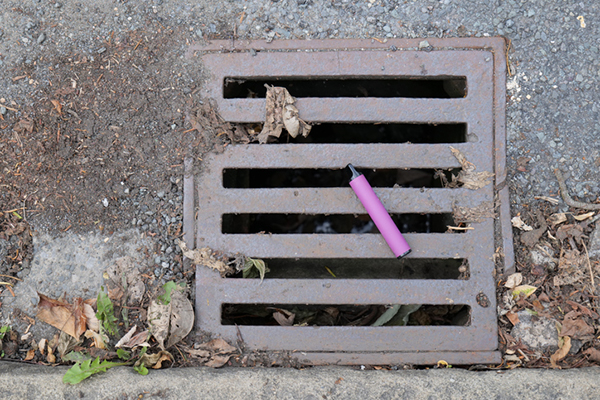
Ending the sale of flavored tobacco products: A social & environmental justice issue
What are the environmental and social justice impacts of the tobacco industry?

Register
Course Information
- Audience: All public health professionals working in nonprofits, healthcare, educational institutions, government and private sector
- Format: Webinar
- Date/Time: Thursday, January 25th, 2024 12:00 PM – 1:00 PM ET.
- Price: Free
- Length: 1 hour
- Credential(s) eligible for contact hours: Sponsored by New England Public Health Training Center (NEPHTC), a designated provider of continuing education contact hours (CECH) in health education by the National Commission for Health Education Credentialing, Inc. This program is designated for Certified Health Education Specialists (CHES) and/or Master Certified Health Education Specialists (MCHES) to receive up to 1 total Category I continuing education contact hours. Maximum advanced-level continuing education contact hours are 1. Provider ID: 1131137 Event ID: PM1131137_01252024.If you are not seeking a CHES/MCHES contact hours, if you complete the post-test and evaluation, you will receive a Certificate of Completion. The Certificate will include the length of the course.
- Competencies: Policy Development and Program Planning Skills
- Learning Level: Awareness
- Companion Trainings: None
- Supplemental materials:None
- Pre-requisites: None
About this Webinar
The tobacco industry wrote the playbook for all other industries that rely on predatory practices that harm human, environmental and ecological health. That playbook leads to premature death and reduced quality of life for communities, particularly those already experiencing health and economic disparities. As such, efforts to advance policies to end the sale of flavored tobacco products have social and environmental justice implications. Maine Public Health Association joined with dozens of other health, education, and business partners on a multi-year campaign to end the sale of all flavored tobacco products in Maine. We’ve made progress, but the work continues.
What you'll learn
After attending this webinar, participants will be able to:
- Describe the toll of tobacco use in Maine
- Describe flavored tobacco products
- Describe environmental impacts of tobacco use and waste
- Describe disproportionate harms of tobacco industry practices and the social justice implications
Subject Matter Experts

Rebecca Boulos
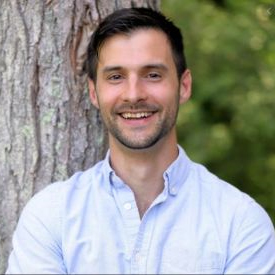
Matt Wellington
Rebecca Boulos, MPH, PhD is executive director of Maine Public Health Association. Becca earned her Master of Public Health from Yale University and her PhD from Tufts University. Becca provides research expertise for MPHA’s advocacy and policy efforts.
Matt Wellington serves as associate director of Maine Public Health Association. Matt earned his Bachelor of Arts degree from Manhattan College and has more than 10 years of experience running advocacy campaigns across the country, bringing cross-sector coalition building and communications expertise to our campaign efforts.
Registration
Select the Enroll Me button below to register for this recording. If you have any trouble accessing the recording, contact support@nephtc.org.
Acknowledgement: This project is supported by the Health Resources and Services Administration (HRSA) of the U.S. Department of Health and Human Services (HHS) as part of award 2 UB6HP31685‐05‐00 “Public Health Training Centers.” The contents are those of the author(s) and do not necessarily represent the official views of, nor an endorsement, by HRSA, HHS or the U.S. Government.

Engagement, Education, Resources, and Empowerment: The Essential Role of Community Health Workers in Addressing the Opioid Epidemic Webinar 1
Why are community health workers an essential part of addressing the opioid epidemic?


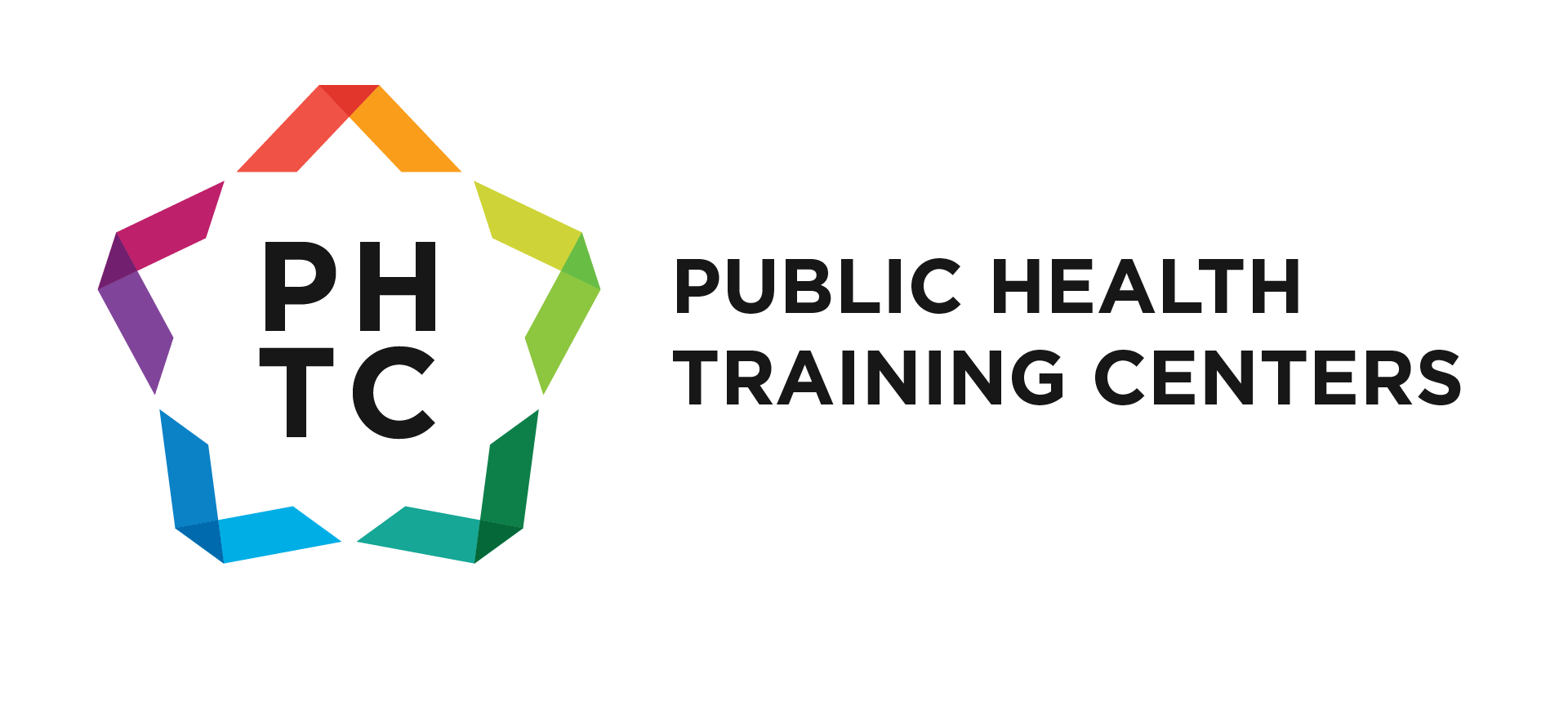
Register
Course Information
- Audience: Community health workers
- Format: Online Webinar
- Date/Time:
Webinar 1: November 20, 2018
12:00-1:00 PM
Webinar 2: December 4, 2018
12:00-1:00 PM - Price: Free
- Length: 1 Webinar Session, 1 hour
- Credential(s) eligible for contact hours: Certificate of completion
- Competencies: Community Partnership Skills
- Learning Level: Awareness
- Companion Trainings: None
- Supplemental materials: None
- Pre-requisites: None
About this Webinar
This two-part webinar series will provide:
- An overview of the opioid epidemic, both at a federal and state-level, focusing on origins and trends related to opioid use disorder and opioid overdose.
- Discussion of the impact of the opioid epidemic on communities and special populations, including any emerging health disparities.
- Education on how opioid use disorder can affect other health and social conditions.
What you'll learn
At the end of the course, participants will be able to:
- Explain the prevalence of opioid use disorder and opioid overdose and its impact on our region.
- Understand how opioid use disorder impacts the health of a community.
- Describe 3 ways that community health workers can improve care or support recovery for persons with opioid use disorder.
Subject Matter Expert

Dr. Robert Roose
Chief, Addiction Medicine & Recovery Services,
Trinity Health Of New England
Registration and Contact Hours
Select the Enroll button below to register for this webinar. If you have any trouble accessing the webinar, contact trainingmanager@nephtc.org.
The Certificate of Completion will include the length of the webinar. Generally 50 – 60 minutes is equivalent to 1 contact hour. Contact hours may be applicable towards continuing education requirements for certain credentials. Check with your credentialing body to verify if the topic meets its continuing education requirements.

Engagement, Education, Resources, and Empowerment: The Essential Role of Community Health Workers in Addressing the Opioid Epidemic Webinar 2
Why are community health workers an essential part of addressing the opioid epidemic?



Register
Course Information
- Audience: Community health workers
- Format: Online Webinar
- Date/Time:
Webinar 1: November 20, 2018
12:00-1:00 PM
Webinar 2: December 4, 2018
12:00-1:00 PM - Price: Free
- Length: 1 hour
- Credential(s) eligible for contact hours: Certificate of completion
- Competencies: Community Partnership Skills
- Learning Level: Awareness
- Companion Trainings: None
- Supplemental materials: PowerPoint
- Pre-requisites: None
About this Webinar
This two-part webinar series will provide:
- Discussion of effective strategies for addressing the opioid epidemic focusing on prevention, intervention, and treatment of opioid use disorder – and supporting individuals in recovery. (This will include information on naloxone and medication treatment).
- A review of models or potential strategies to incorporate CHWs into prevention, intervention, treatment and recovery support.
- Specific steps that CHWs can take when working with persons or families impacted by opioid use disorder to improve care or support recovery.
What you'll learn
At the end of the course, participants will be able to:
- Explain the prevalence of opioid use disorder and opioid overdose and its impact on our region.
- Understand how opioid use disorder impacts the health of a community.
- Describe 3 ways that community health workers can improve care or support recovery for persons with opioid use disorder.
Subject Matter Experts

Dr. Robert Roose
Chief & Addiction Medicine Trinity Health Of New England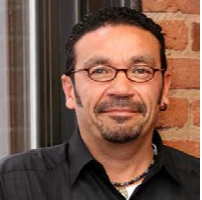
Haner Hernández, Ph.D.,
CPS,
CADCII,
LADCI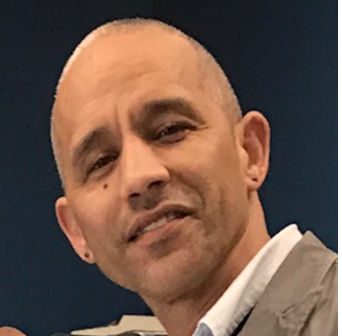
Adalberto Cotto
Prevention and Navigator Coordinator
Registration and Contact Hours
Select the Enroll button below to register for this webinar. If you have any trouble accessing the webinar, contact trainingmanager@nephtc.org.
The Certificate of Completion will include the length of the webinar. Generally 50 – 60 minutes is equivalent to 1 contact hour. Contact hours may be applicable towards continuing education requirements for certain credentials. Check with your credentialing body to verify if the topic meets its continuing education requirements.

Groups Recover Together: Providing Opioid Use Disorder Treatment for Justice Involved Individuals
Have you ever wondered what substance use disorder treatment looks like for incarcerated individuals??

Register
Course Information
- Audience: All cross sector professionals interested in Opioid Use Disorder (OUD)
- Format: Webinar
- Date/Time: Thursday, March 7th, 2024 12:00 PM – 1:00 PM ET.
- Price: Free
- Length: 1 hour
- Credential(s) eligible for contact hours: Sponsored by New England Public Health Training Center (NEPHTC), a designated provider of continuing education contact hours (CECH) in health education by the National Commission for Health Education Credentialing, Inc. This program is designated for Certified Health Education Specialists (CHES) and/or Master Certified Health Education Specialists (MCHES) to receive up to 1 total Category I continuing education contact hours. Maximum advanced-level continuing education contact hours are 1. Provider ID: 1131137 Event ID: PM1131137_03072024.
If you are not seeking a CHES/MCHES contact hours, if you complete the post-test and evaluation, you will receive a Certificate of Completion. The Certificate will include the length of the course.
- Competencies: Health Equity Skills
- Learning Level: Awareness
- Companion Trainings: None
- Supplemental materials:None
- Pre-requisites: None
About this Webinar
One of the largest Opioid Health Home providers in Maine, Groups Recover Together (Groups) provides comprehensive community-based treatment for individuals suffering from opioid use disorder (OUD). Since 2019, the Maine Department of Corrections has partnered with Groups to provide connections to treatment for individuals releasing from custody. Between July 2019 and August 2023, Groups helped connect over 1,000 incarcerated individuals to community-based medication for opioid use disorder (MOUD) treatment. This partnership has yielded positive results in the form of decreased fatal overdose rates among this population.
What you'll learn
After attending this webinar, participants will be able to:
- Identify characteristics of evidence-based outpatient treatment for individuals with opioid use disorder.
- Identify benefits associated with using a harm reduction approach to opioid use disorder treatment.
- Discuss the benefits of comprehensive discharge planning for individuals with an opioid use disorder releasing to the community following incarceration.
Subject Matter Expert

Melissa Caminiti
Ms. Melissa Caminiti, MPH, RN is a Partnership Director with Groups Recover Together, where she develops strategic relationships to increase access to comprehensive, value-based community treatment for opioid use disorder (OUD). Formerly, she served as Director of Recovery and Reentry Services with Wellpath for the Maine Department of Corrections. In that role she had oversight for the operationalization of OUD treatment services for Maine’s six adult state prison facilities. She received both her Bachelor of Science in Nursing and her Master of Public Health from the University of North Carolina in Chapel Hill.
Registration
Select the Enroll Me button below to register for this recording. If you have any trouble accessing the recording, contact support@nephtc.org.
Acknowledgement: This project is supported by the Health Resources and Services Administration (HRSA) of the U.S. Department of Health and Human Services (HHS) as part of award 2 UB6HP31685‐05‐00 “Public Health Training Centers.” The contents are those of the author(s) and do not necessarily represent the official views of, nor an endorsement, by HRSA, HHS or the U.S. Government.

Talking to Teens in the Era of Recreational Cannabis Legalization
How does recreational legalization impact youth CANNABIS use?

Register
Course Information
- Audience: Public health, school administration, school health, teachers, parents, coaches, community leaders, law enforcement
- Format: Webinar
- Date/Time: June 29, 2017
12:00-1:00pm (EST) - Price: Free
- Length: 1 hours
- Competencies: Communications Skills
- Learning Level: Awareness
- Supplemental materials: Consolidated resource list for working with youth
- Pre-requisites: None
About this Webinar
Cannabis legalization approved in MA in 2016- many individuals who care for or work with youth have questions about how this will affect youth use and what they should be doing. In this one hour webinar, we will discuss the different ways that the effects of legalization of cannabis may have on youth use based on other states experiences and what we can do in MA to take steps to optimize youth health and well-being.
What you'll learn
At the end of the webinar, participants will be able to:
- Explain the latest that is known about the effects of cannabis on youth development
- Identify lessons learned from other states that have legalized cannabis
- Describe two ways that the participant can communicate with youth and parents about the risks of cannabis use
Subject Matter Expert

Sarah M. Bagley, MD
Director, CATALYST Program, Boston Medical Center
Assistant Professor of Medicine and Pediatrics, BU SOM
Boston Medical Center
Registration and Contact Hours
Select the Enroll button below to register for this webinar. If you have any trouble accessing the webinar, contact trainingmanager@nephtc.org.
The Certificate of Completion will include the length of the webinar. Generally 50 – 60 minutes is equivalent to 1 contact hour. Contact hours may be applicable towards continuing education requirements for certain credentials. Check with your credentialing body to verify if the topic meets its continuing education requirements.

The Nation's First State-Authorized Overdose Prevention Center: Legal and Public Health Updates
How do overdose prevention centers work, and what impacts do they have on people who use them on the communities in which they're located?


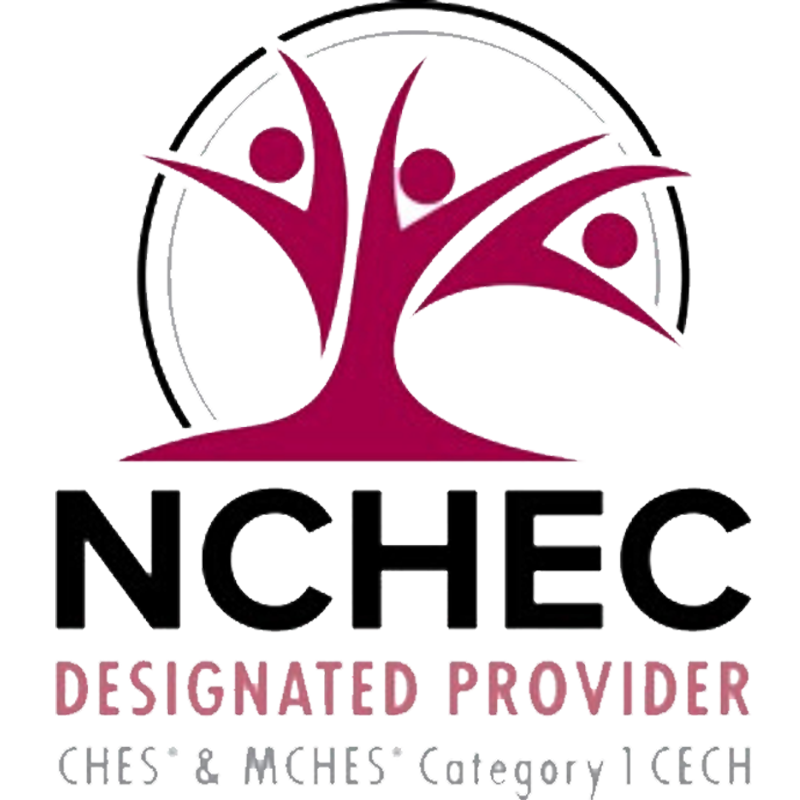
Course Information
- Audience: Public health professionals and anyone providing services to people who use drugs (e.g., harm reduction, treatment, recovery supports)
- Format: Webinar
- Date/Time: January 14th, 2025
12:00 - 1:00 PM EST - Price: Free
- Length: 1 hour
- Credential(s) eligible for contact hours: Sponsored by New England Public Health Training Center (NEPHTC), a designated provider of continuing education contact hours (CECH) in health education by the National Commission for Health Education Credentialing, Inc. This program is designated for Certified Health Education Specialists (CHES) and/or Master Certified Health Education Specialists (MCHES) to receive up to 1 total Category I continuing education contact hour. Maximum advanced-level continuing education contact hour is 1. Provider ID: 1131137 Event ID: PM1131137_11102021.
If you are not seeking CHES/MCHES contact hours, if you complete the evaluation, you will receive a Certificate of Completion. The Certificate will include the length of the course.
- Competencies: Analytical and Assessment Skills, Policy Development and Program Planning Skills, Public Health Science Skills
- Learning Level: Awareness
- Companion Trainings: None
- Supplemental materials:None
- Pre-requisites None
About this Webinar
In this webinar, the presenters will discuss what overdose prevention centers are and how they fit into a broader continuum of care for people who use drugs. Attendees will learn about the services provided at an overdose prevention center, and how these facilities aim to positively influence the health and well-being of people who use them. Finally, the presenters will highlight the existing scientific evidence base examining the impacts that overdose prevention centers have on the communities in which they are located.
What you'll learn
At the end of the course, participants will be able to:
● Define an overdose prevention center, and how they function within a broader continuum of care for people who use drugs;
● Evaluate the services provided at an overdose prevention center and how they connect people who use them to other health and social services;
● Appraise the existing scientific evidence base supporting the public health impacts of overdose prevention centers.
Subject Matter Expert

Brandon Marshall-

Colleen Daley Ndoye -
Brandon Marshall is a professor in the Department of Epidemiology at the Brown University School of Public Health. He is also founding director of the People, Place and Health Collective at Brown University. Dr. Marshall’s research focuses on substance use epidemiology, with a specific emphasis on harm reduction and overdose prevention. He is passionate about conducting research that improves the health and well-being of people who use drugs.
Colleen Daley Ndoye is the founding Executive Director of Project Weber/RENEW, an innovative nonprofit organization providing peer-based recovery, harm reduction and support services in Rhode Island. She brings almost 20 years of experience creating and directing peer-based programming. Project Weber/RENEW’s work is guided by individuals who have engaged in sex work, substance use, or who have experienced homelessness and who are trained to deliver peer-based support, basic needs, and advocacy services to the client population. She has dedicated her career to serving low-income communities, communities of color, and communities at highest risk of adverse health outcomes including HIV, hepatitis C, and overdose.
Registration
Select the Enroll Me button below to register for this webinar. If you have any trouble accessing the webinar, contact support@nephtc.org.
Acknowledgement: This project is/was supported by the Health Resources and Services Administration (HRSA) of the U.S. Department of Health and Human Services (HHS) under grant number UB6HP31685 “Regional Public Health Training Center Program.” This information or content and conclusions are those of the author and should not be construed as the official position or policy of, nor should any endorsements be inferred by HRSA, HHS or the U.S. Government.
* Yale School of Public Health, Office of Public Health Practice, a New England Public Health Training Center partner, is a designated provider of continuing education contact hours (CECH) in health education by the National Commission for Health Education Credentialing, Inc. All CHES credit inquiries are managed by YSPH

Treatment Strategies in Primary Care: Nicotine Replacement Therapy & NAC Treatment for Cannabis Use Disorder
What strategies can be used by health and public health providers/professionals to educate youth and their families about harm reduction and using NRT and NAC for treatment in nicotine and cannabis use?

Register
Course Information
- Audience: All public health professionals working in nonprofits, housing, healthcare, educational institutions, government and private sector
- Format: Webinar
- Date/Time: Tuesday, April 2nd, 2024 12:00 PM – 1:00 PM ET.
- Price: Free
- Length: 1 hour
- Credential(s) eligible for contact hours: Sponsored by New England Public Health Training Center (NEPHTC), a designated provider of continuing education contact hours (CECH) in health education by the National Commission for Health Education Credentialing, Inc. This program is designated for Certified Health Education Specialists (CHES) and/or Master Certified Health Education Specialists (MCHES) to receive up to 1 total Category I continuing education contact hours. Maximum advanced-level continuing education contact hours are 1. Provider ID: 1131137 Event ID: PM1131137_02012024.
If you are not seeking a CHES/MCHES contact hours, if you complete the post-test and evaluation, you will receive a Certificate of Completion. The Certificate will include the length of the course.
- Competencies: Public Health Sciences Skills
- Learning Level: Awareness
- Companion Trainings: None
- Supplemental materials:None
- Pre-requisites: None
About this Webinar
Data from the Maine Integrated Youth Health Survey suggest that about half of the youth who vape use nicotine; and about a third report using THC... but did you know that about half of kids using electronic vaporizing devices in Maine made an attempt to quit last year? We need to be ready to help them and support their quit attempt. Join Drs. Fanburg and Hagler on April 2nd for a lunch and learn session to learn about and discuss medications that may help your patients QUIT. We will review evidence and expert recommendations for treatment of Nicotine Use Disorder, Cannabis Use Disorder and learn Tips and Tricks to support patients.
What you'll learn
At the end of the webinar, participants will be able to:
- Discuss medications to help youth with substance use disorder quit
- Describe evidence for the use of nicotine replacement therapy to treat Nicotine Use Disorder and Cannabis Use Disorder
Subject Matter Experts
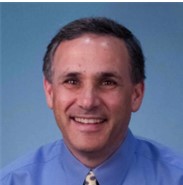
Jonathan Fanburg

Deb Hagler
Jonathan Fanburg, MD, MPH is Chief of the Division of Adolescent and Young Adult Medicine at Maine Medical Center.
Deb Hagler, MD, MPH, FAAP, is immediate past-president of the Maine Chapter, American Academy of Pediatrics and practicing pediatrician at Midcoast Pediatrics in Brunswick, Maine
Registration
Select the Enroll Me button below to register for this recording. If you have any trouble accessing the recording, contact support@nephtc.org.
Acknowledgement: This project is supported by the Health Resources and Services Administration (HRSA) of the U.S. Department of Health and Human Services (HHS) as part of award 2 UB6HP31685‐05‐00 “Public Health Training Centers.” The contents are those of the author(s) and do not necessarily represent the official views of, nor an endorsement, by HRSA, HHS or the U.S. Government.











